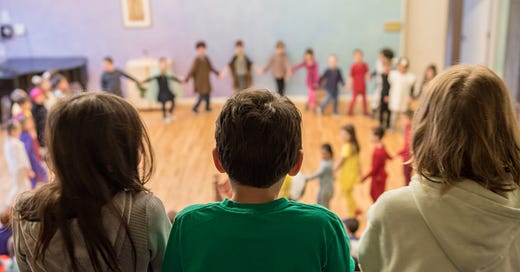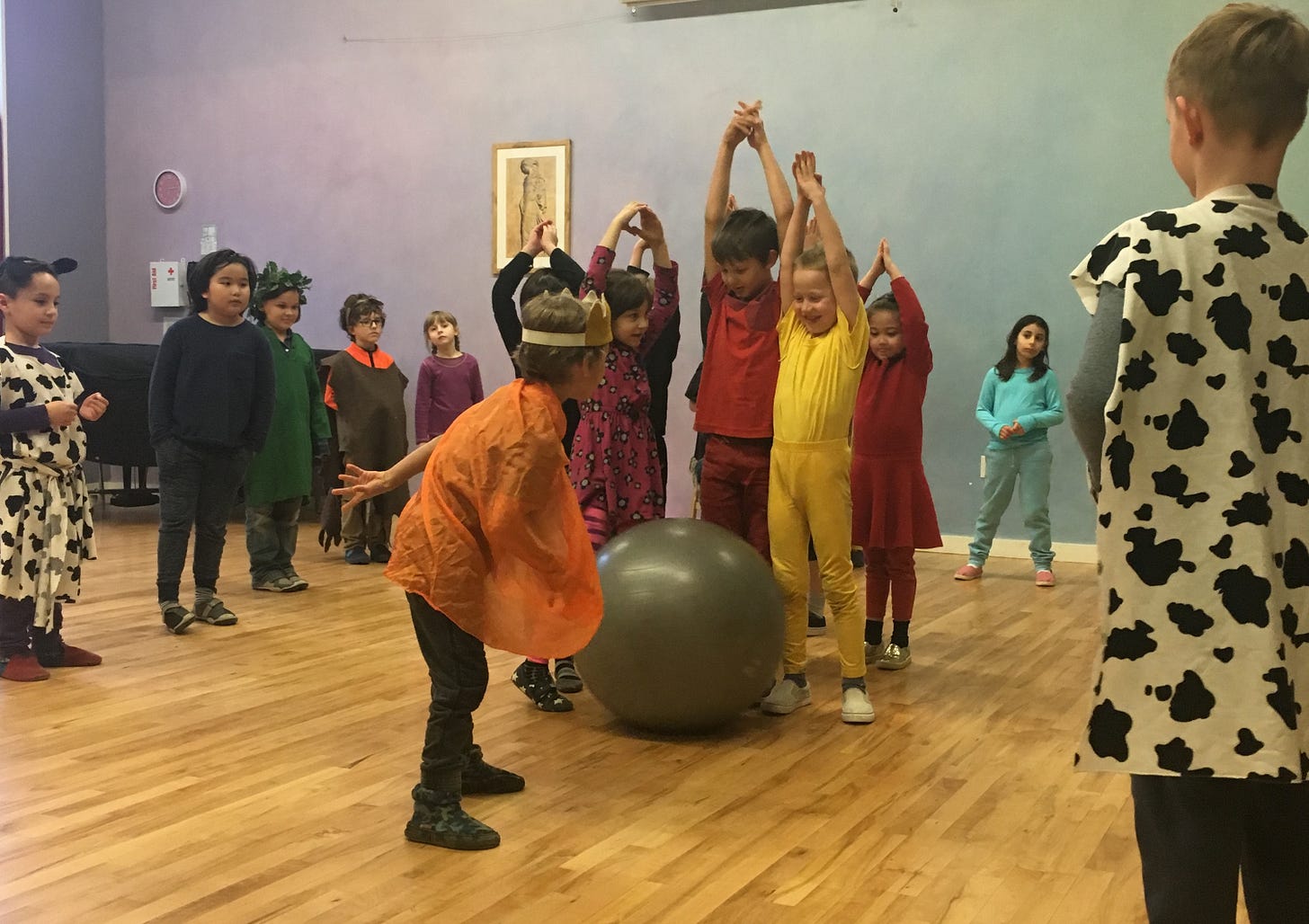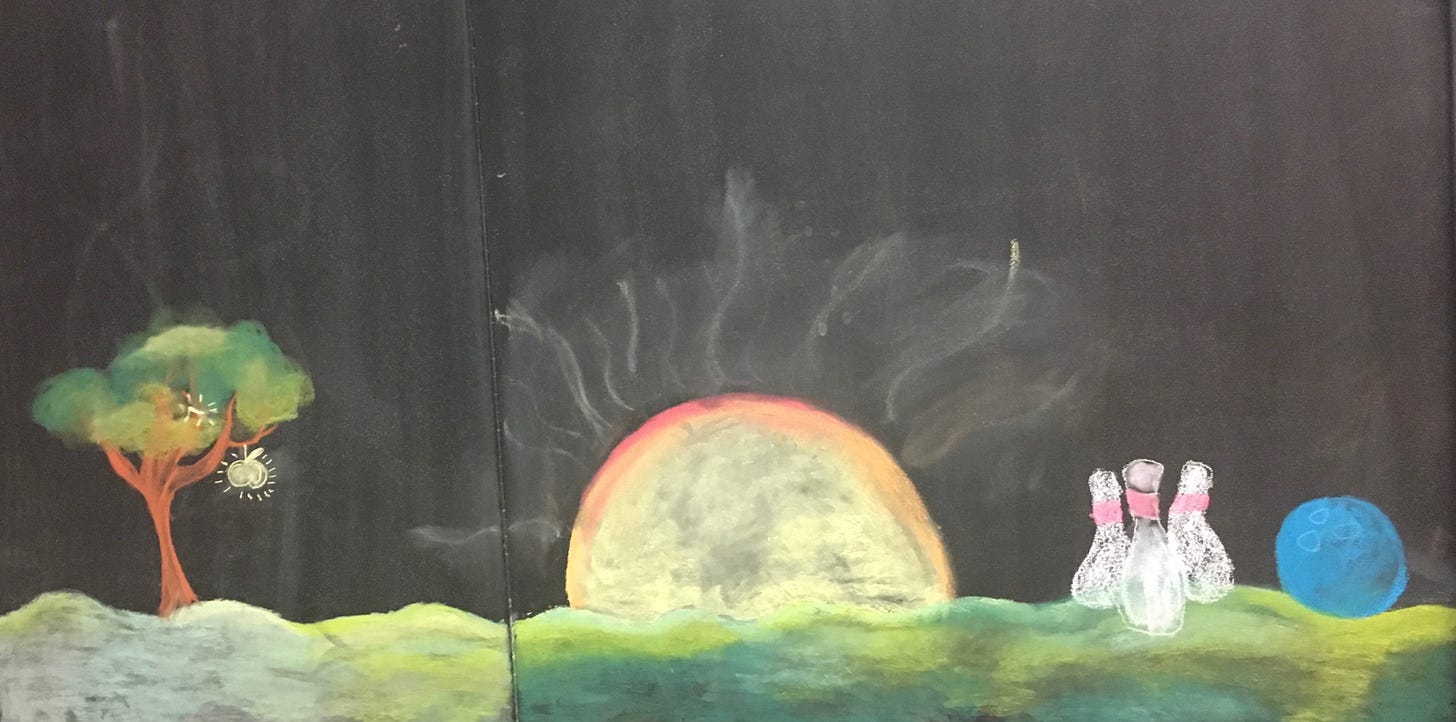It’s play season at many Waldorf schools, and after years of stressing out about class plays, I’ve got some opinions. (Make sure you listen to the voiceover on this one—to hear what I really think.)
As hard as it may be in the moment, it’s important to remember the purpose behind the class play. And to vocally remind parents and community members.
The world is so outcome-driven that it’s easy for people to forget that a polished performance is not the true value of a class play. And, honestly, for most people, the experience is about the final product.
But, really, is there any surprise that Waldorf teachers are interested in more than the final product? Everything we do is centered around the child’s experience. Parents shouldn’t be surprised that this extends to the class play experience, too.
Now, the final product does impact the child’s experience in some ways. Smiling parents and big congratulations feel pretty good. But the weeks of practice and fun leading up to the play are far more impactful.
So, here’s a bullet list of reasons why we do class plays (in my opinion) and experiences that students gain when practicing and performing a class play. (I go into more detail in the voiceover, so make sure you listen.)
And if you’re a paid member, scroll on to download the first-grade class play I wrote, based on the fairy tale The King’s Son Who Feared Nothing.
Coming together as a group
Pretending to be someone else
Having a deeper experience of a story
Creating a full experience of music, story, movement, and speech
Group project work (like sets, costumes, etc.)
Keep reading with a 7-day free trial
Subscribe to Waldorf at Work to keep reading this post and get 7 days of free access to the full post archives.







